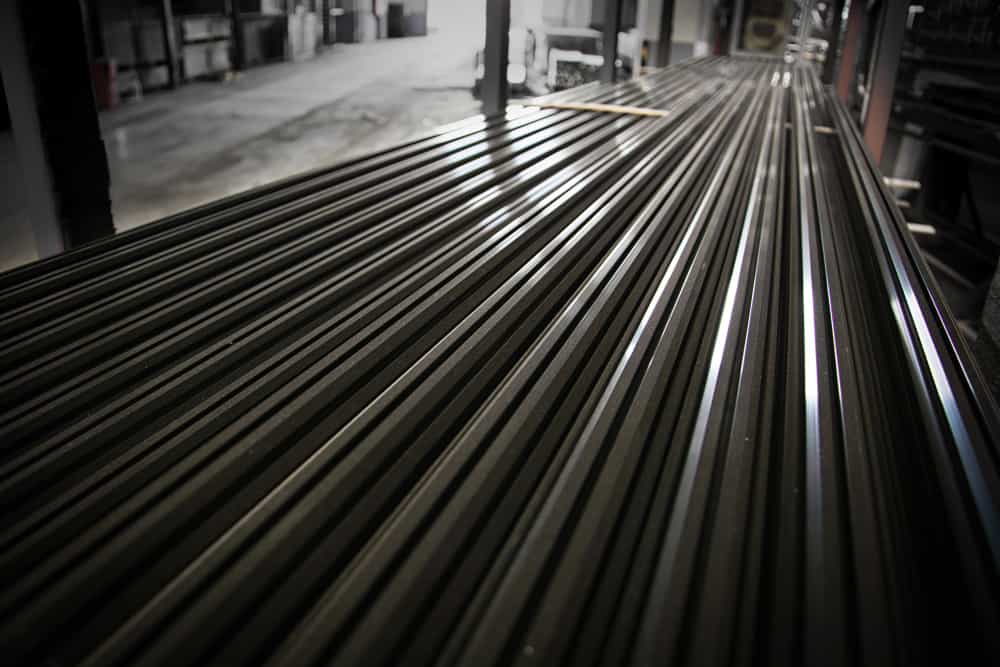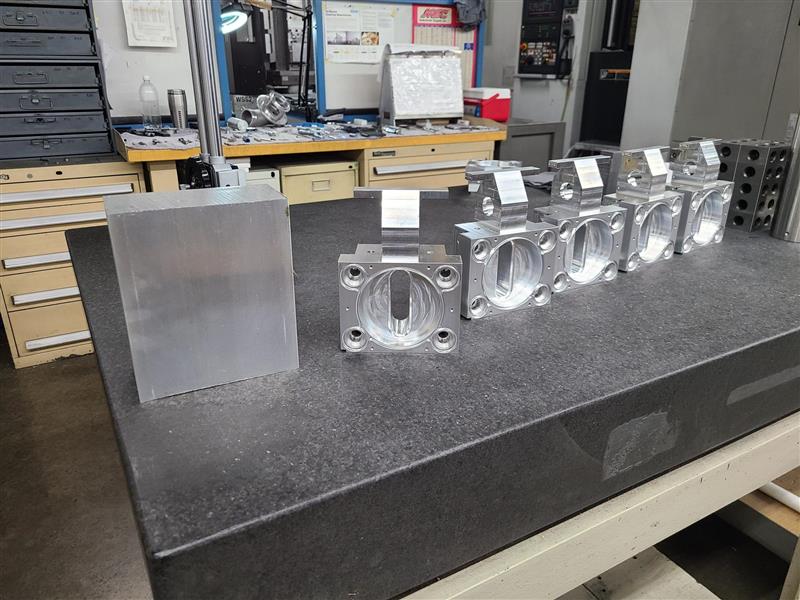Aluminum is often used in custom component creation using subtractive, or CNC machining that makes use of cutting tools guided by Computer Numerical Control (CNC) to cut away at a solid.
This type of manufacturing method is extremely accurate and precise, offering different surface finishes and often using special tooling to handle metals like aluminum.
But, considering there are many different types of aluminum, what is the best aluminum for machining?
Like most questions with many variables, the answer depends on what you need to create using this versatile metal.
Aluminum Alloys
Aluminum is one of the most versatile materials to use for machined parts. It has a high strength-to-weight ratio and is lightweight, making it economical for production use. It is also easy to recycle: According to the Aluminum Association almost 75% of all aluminum previously produced is still in use today.
Pure aluminum can be further optimized by mixing it with other elements to create an alloy. Commonly used aluminum alloys often include:
- Silicon
- Magnesium
- Copper
- Iron
- Zinc
Alloys of aluminum are classified into a wide variety of grades. The grading system helps classify a particular aluminum alloy according to its characteristics. This classification helps engineers and machine shops to determine which alloy is best, based on end-use.
Heat Treating
In addition to considering the grade of the alloys of aluminum, engineers may also look at whether or not a particular alloy is heat-treatable.
Heat treating is a process in which aluminum is able to be strengthened by increasing its temperature for a set amount of time, essentially baking the metal. There are several kind of heat treatments available including:
- Annealing
- Homogenizing
- Solution heat treatment
- Precipitation hardening (artificial aging)
Heat-treatable alloys in the annealed condition are especially strong: after heating, the parts are rapidly cooled, which freezes the metal’s atoms in place. An alloy’s aluminum grade and further processes like those listed above, give aluminum specialized advantages for various utilizations.
Machinability
Aluminum makes for an excellent machining metal partly due to its ability to be easily shaped and cut. Tooling tends to last longer, which translates to cost savings for manufacturers. One of the best tool coatings for machining aluminum is diamond since it performs well at high speeds, although there is significant cost up-front.

Aluminum Classification: The Best Grade for Machining
It is necessary to have a system of organization for aluminum since so many different alloys exist. Each has unique physical properties like corrosion resistance, strength and ductility. Aluminum grades are classified into seven groups in numerical order, ranging from the 1XXX series to the strongest alloys in the 7XXX series.
Determining the best grade of aluminum for machining depends highly on what it will be used for. Although not always the case, the following types of aluminum are often paired with the usages below.
Transport Vehicle Parts, Structural Parts, & Electronics
2XXX Group
The 2XXX group is used in the world’s largest automotive, aerospace and transportation industries. The most apparent element used in these alloys is copper, and they are very resistant to fatigue.
Sometimes called “duralumin,” this group has a high strength-to-weight ratio but, due to the copper, is susceptible to corrosion. A commonly used alloy from the 2XXX series is aluminum 2024.
Household Goods, Chemicals & Building Materials
Aluminum 3003
Aluminum 3003 is nearly pure but does contain the mineral manganese. It is a non-heat treatable alloy, ideal for making items used in the kitchen like cooking equipment and utensils, as well as chemical equipment, roofing and siding.
Its heat resistance also makes it ideal for secondary treatments and is a great choice if you want the best coating for machining aluminum.
Marine Transport Parts, Heat Exchangers & Fuel Lines
Aluminum 5052
Aluminum 5052 is strong, workable and corrosion-resistant. Its main elements are magnesium and chromium.
This alloy is resistant to saltwater which makes it perfect for the marine industry and bridges. Aluminum 5052 is the strongest non-heat-treatable alloy. It is also found in aircraft parts, household appliances and commercial, heavy-duty cooking equipment.
Architectural Parts, Aircraft & Computers
6XXX Group
The major alloys in this group are magnesium and silicon. One of the most versatile of all machinable alloys is aluminum 6061, which is available in sheet, plate and extrusions.
In its sheet metal form, aluminum 6061 is one of the best-stamped aluminum alloys for machining. It is often used in metal fabrication including aerospace applications.
Bicycles, Golf Clubs, Weapons & More
7XXX Group
The 7XXX group is often used for highly–stressed functions and is heat-treatable, ductile and tough. Its major element is zinc but alloys may contain copper, chromium, and magnesium.
In addition to the sporting goods industry, aluminum from the high-strength 7XXX series is used for marine applications, aerospace, defense and transportation. These alloys are so strong, they can become brittle over time. One of the most popularly used alloys in this series is aluminum 7075.
The Most Adaptable
Although the adaptability of the 6XXX group makes it a top runner for the best aluminum grade for machining, it truly depends on the mechanical properties of the alloy, the end application and the machining processes used. Regardless, aluminum is offered in such a range of options, it will continue to be used as one of the most flexible, economical and strong metals in engineering.

Choosing a Machine Shop for Your Aluminum Parts
At Moseys Production Machinists, we have almost half a century of experience creating highly precise, ready for assembly parts that speed up your supply chain management and reliably reduce inventory issues.
If you require large, or even small volumes of CNC, Swiss precision parts made of aluminum, or any material for that matter, talk to us today and get a free quote.